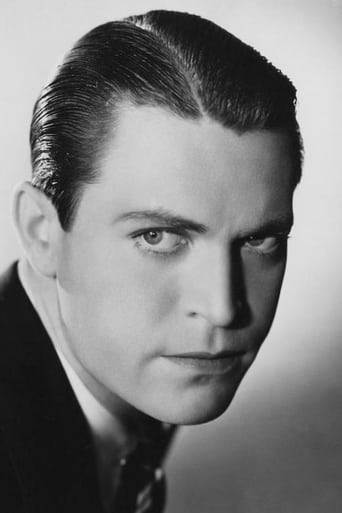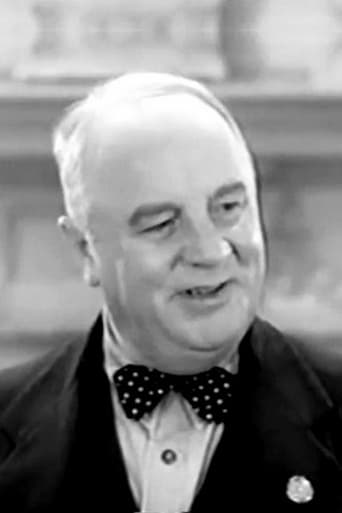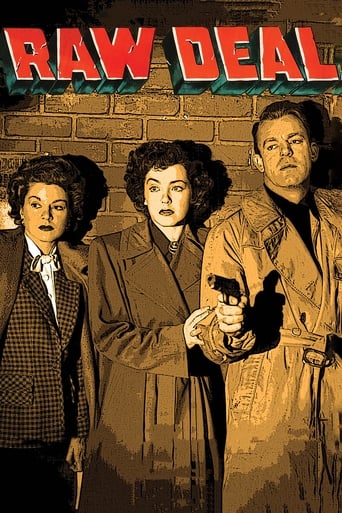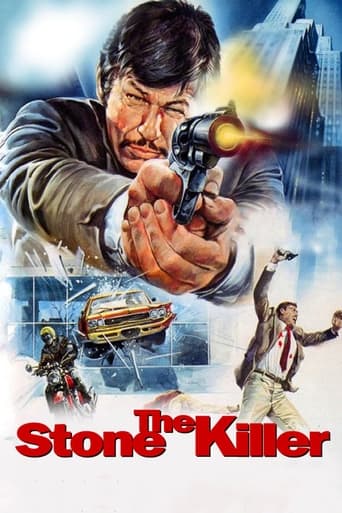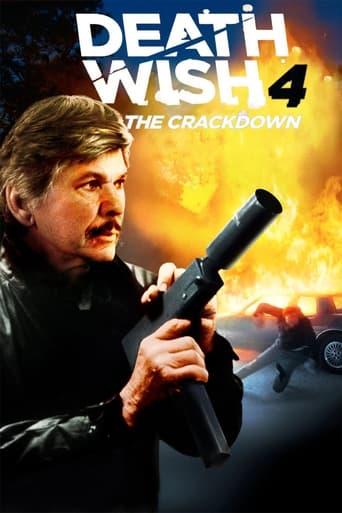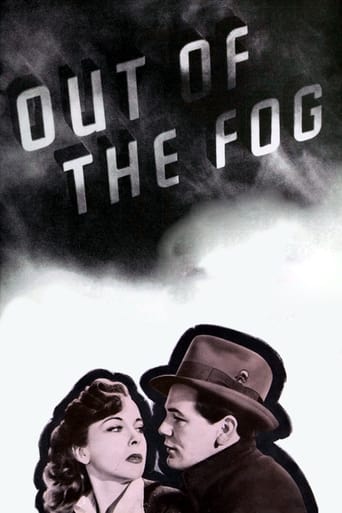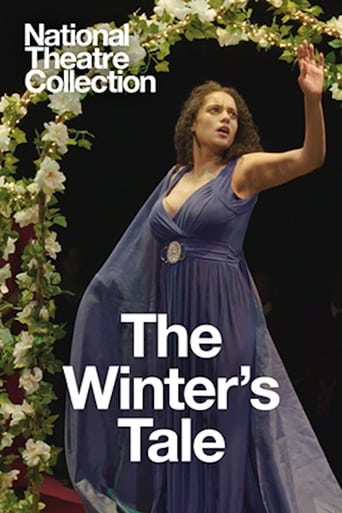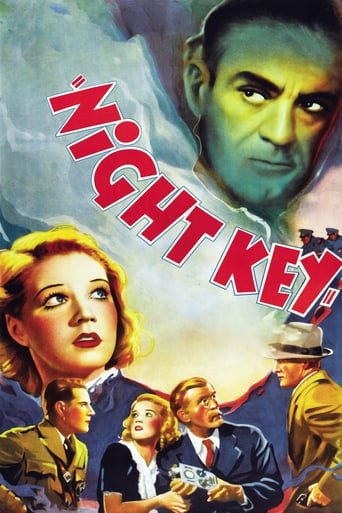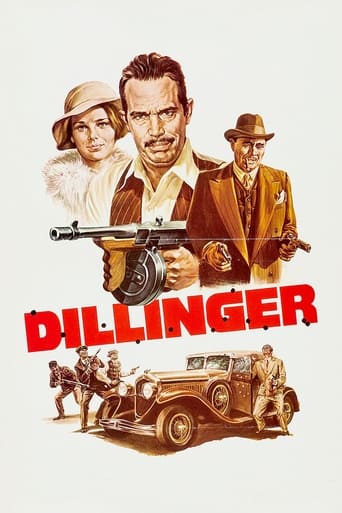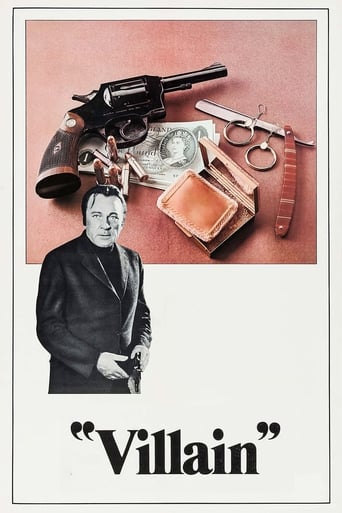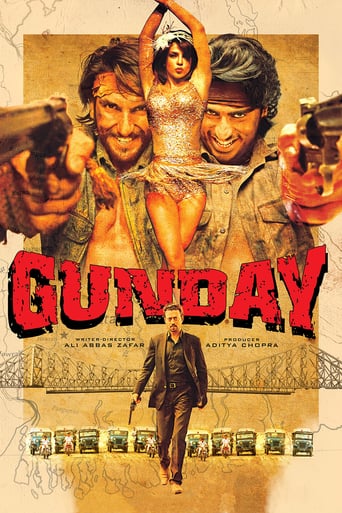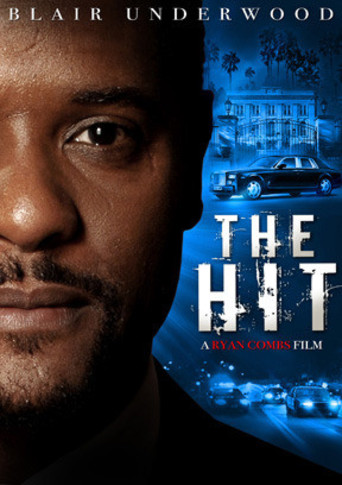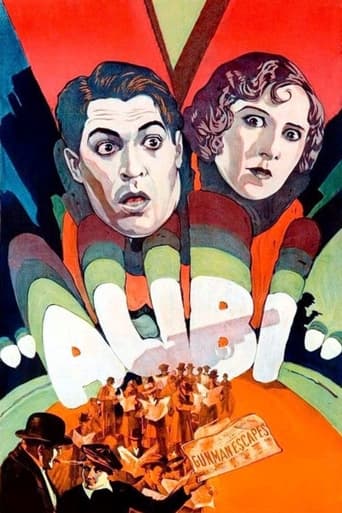
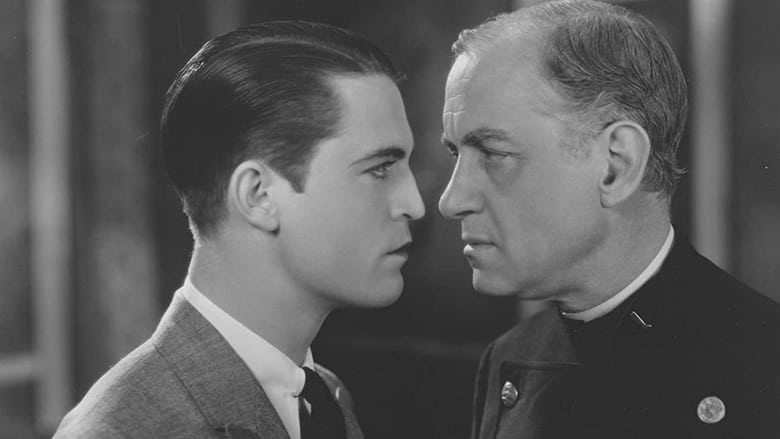
Alibi (1929)
Chick Williams, a prohibition gangster, rejoins his mob soon after being released from prison. When a policeman is murdered during a robbery, he falls under suspicion. The gangster took Joan, a policeman's daughter, to the theater, sneaked out during the intermission to commit the crime, then used her to support his alibi. The detective squad employs its most sophisticated and barbaric techniques, including planting an undercover agent in the gang, to bring him to justice.
Watch Trailer
Cast


Similar titles
Reviews
"Alibi" starts out promisingly enough, with a sort of sound symphony set to an expressionist montage of a man being released from prison. We hear the tread of wardens' boots, the clank of truncheons against metal bars, steel doors rasping and clanging -- it's almost like a musical number and pays homage to the new technology that had so recently hit screens and changed films for ever in the late 20s.But then "Alibi" starts talking, and things go quickly downhill from there. This Best Picture nominee from 1929 does manage to capture a striking visual style, which is something I can't say for the film that won the second Academy Award for Best Picture, "The Broadway Melody." But it's clear that the team behind "Alibi" didn't have much more of an idea of what to do with sound than the creators of that other film did.As with "The Broadway Melody," "Alibi" is more interesting as a blueprint for films that would spring from the same genre than it is on its own terms. In this case, that genre is the seedy gangster film that Warner Bros. would turn into an art form only a few years later.Chester Morris received an Academy Award nomination for Best Actor for his performance as the reformed gangster who's not really reformed, but his mugging is nearly uncomfortable to watch -- he would prove himself to be a quick learner in the sound medium and deliver a very good performance in "The Divorcée" only a year later. The abstract art direction by William Cameron Menzies was also recognized by the Academy with a nomination."Alibi" tricks a viewer into thinking that it's going to go to some rather interesting places that it ultimately doesn't. There's some attempts at obscuring the boundaries between the criminals and the cops that a more heavily enforced production code wouldn't allow in movies from a decade later, but it doesn't take that juxtaposition very far, and we always pretty much know whose side we're supposed to be on.As with "The Broadway Melody," "Alibi" is interesting for people who want to see what some of the early Academy Award winning and nominated movies look like, but it's not very enjoyable for anything else.Grade: C
The ugliness of the early sound era is on parade in Alibi, a cops and robbers yawn that features both figuratively and literally a lot of bad actors. Sound was new territory for cast and crew and it shows both in the direction of Roland West and his cast who clearly needed a lot more rehearsal time as they endlessly pause between sentences an attempt to convey menace by locked in mug like facial expressions. West shows no grasp of pacing as he dissembles nearly every taut moment in the film with pregnant pauses followed by bad inflection from his actors who on occasion seem to be winging it on their own. Only Chester Morris leading with his Dick Tracy chin offers some convincing moments while the rest of the cast seems content just to have their voice picked up by the microphone. West meanwhile allows scenes to linger and linger to a point where you swear you can here crickets chirping. A glowing example can be found in undercover cop Regis Toomey's three minute dying scene that has to be endured to be believed. Was West incapable of saying the word cut?There are some fine rooftop scenes of dramatic silhouette and neon and interiors that feature some eye popping and audacious art deco design that may well have carried the day if it were a silent. But in the infancy of sound these growing pains make Alibi one big one to watch.
Aside from wine and cheese, not all things age well. Like a gallon of milk, over time this film has started to sour--thanks mostly to changing and improving film-making. In fact, had this film been made just a year or two later, it would have been much easier to sit through. Unfortunately, this can be said of most films made in 1929. This was a transition period in which silent films were changing to sound and the technology frankly wasn't very good. Plus, since this was all new territory, the films tended to be very, very stagy--mostly because the sound men had no idea how to compensate for people as they moved away or towards microphones. This is all painfully obvious with ALIBI. Some characters are loud and easy to understand, others appear as if whispering and others have their voices fade as they move. Additionally, the film looked a lot like a play in parts as they used very long single shots with few inter-cut scenes. Plus, it was obvious some scenes were originally filmed as silent because the standard 24 frames per second (used for all sound films) made these segments seem like people were moving too quickly (as silents were filmed anywhere from 16 to 22 frames per second).As for the plot, it's a crime drama with a lot to like and a lot to hate. I liked how, at times, the film was rather gritty--particularly in the last few minutes (the building scene at the very end was amazingly tough and memorable--one of the best death scenes in film history). Some may also like how the cops in the film pretty much ignore the Bill of Rights--and weren't above slapping a confession out or someone or threatening them with guns! Some may also be appalled, but this is truly Film Noir-like in its sensibilities. But, the plot also is really stupid at times--with some of the dumbest criminals you'll ever see in films, clichés galore and a very sappy death scene that will practically make you cringe.Now as for the plot. For 1929, it was really quite good. If we'd had IMDb and the internet back then, a score of 7 or 8 wouldn't be unexpected. However, by today's standards, I'd have a hard time giving it anything more than a 2 or 3. So, splitting the difference, a 5 seems appropriate--for the time, a very good film but when seen today, it's terribly old fashioned and dull.
One of the first scenes of ALIBI has a camera prowl an art deco night club and into the world of an ex-con (Chester Morris) Much of the film is stagy, including Morris' almost death scene. What makes ALIBI shine so well are the visual elements. The art-deco set direction, the incredibly well edited cop shooting sequence and a rooftop chase that looks more pen and ink rather than photograph makes up for the staginess.


